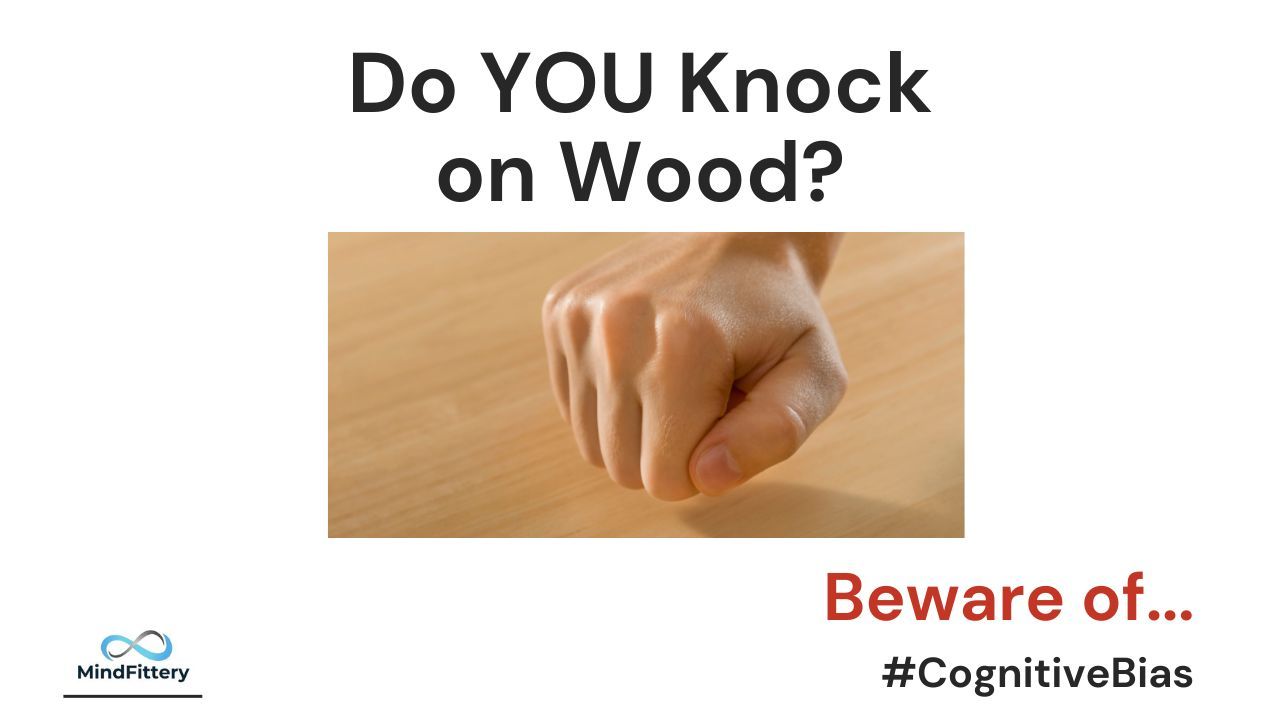The ‘Knock on Wood’ Bias: How Magical Thinking Undermines Leadership
May 16, 2023
Are you familiar with the tradition of knocking on wood for luck?
It might seem harmless… but it’s actually a great example of how our brain’s cognitive biases—especially magical thinking and the illusion of control—can quietly sabotage our decision-making, leadership, and well-being.
Where does it come from?
🌳 The phrase is believed to date back to ancient Celtic times. People would knock on trees to thank the gods or ask for protection.
Today, it shows up as a kind of mental shortcut—a way to feel safe or in control in uncertain moments. You land a big client or ace a presentation, and then say: “Knock on wood!”
It feels like you’re protecting your success from being “jinxed.”
But here’s the thing…
🧠 What’s really going on?
This is what psychologists call the illusion of control—believing we can influence outcomes through rituals, habits, or superstitions that aren’t actually connected to the result.
And while it may soothe anxiety temporarily, it can become a trap when it leaks into our decision-making.
So why do we do it?
Because our brain loves shortcuts.
It craves certainty in an uncertain world. It wants relief from anxiety—and it wants it fast. Magical thinking gives us a false sense of safety and conserves mental energy… but that doesn’t mean it helps us thrive.
Real growth and success come from:
-
Clear thinking
-
Honest feedback
-
Effective planning
-
And courageous choices
Not superstition.
How this bias shows up in business:
Here are a few common traps:
1️⃣ Micromanagement
A leader hijacked by the illusion of control believes they need to oversee everything to ensure success.
The result? A disempowered team, low innovation, and high stress.
2️⃣ Resistance to Change
Sticking with the “old way” feels safer. But refusing to adapt, update systems, or explore new tools… is a recipe for falling behind. (Remember Kodak?)
3️⃣ Misplaced Credit
Hiring a “sales star” based solely on past success assumes that person will repeat the magic, without asking: What else contributed to that success? Market timing? Product quality? Team dynamics?
This is bias at work.
What helps?
Self-awareness. Emotional intelligence. Thoughtful leadership.
The more aware we are of our brain’s sneaky shortcuts, the more we can lead with clarity, confidence, and wisdom.
So here’s your mini M.E. (Mental & Emotional) Fitness practice:
Next time you catch yourself thinking, “I better knock on wood”… pause.
Ask: What am I afraid of losing?
What’s really in my control?
What would real preparation or clarity look like here?
Your awareness is your power.
Let’s grow it together.
✨ Originally posted on LinkedIn. Join the conversation there or check out the MindFittery podcast for more tools like this.
Are we connected on LinkedIn? Join some of our conversations there!
Stay connected with news and updates!
Join our mailing list to receive the latest news and updates from our team.
Don't worry, your information will not be shared.
We hate SPAM. We will never sell your information, for any reason.

